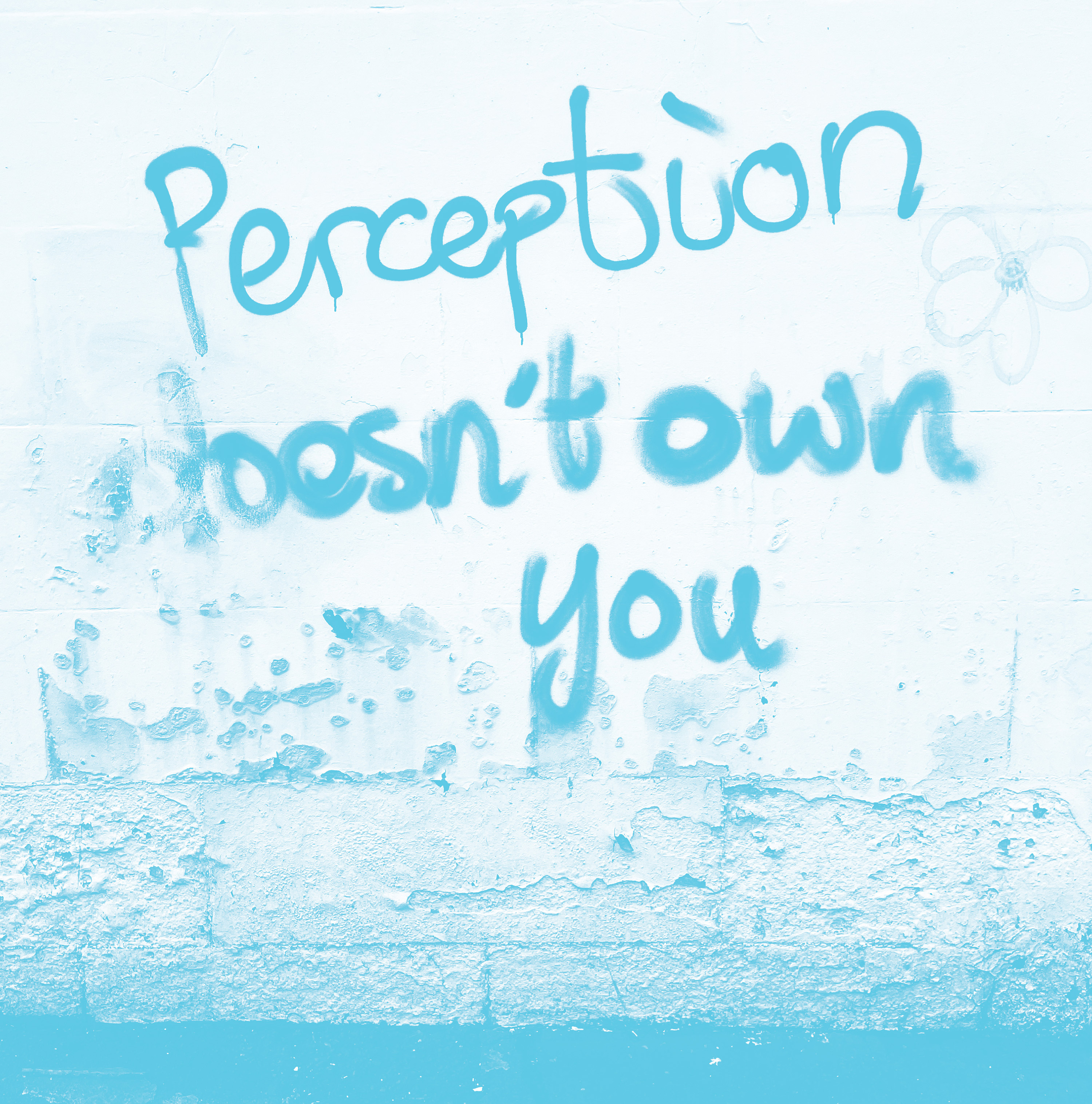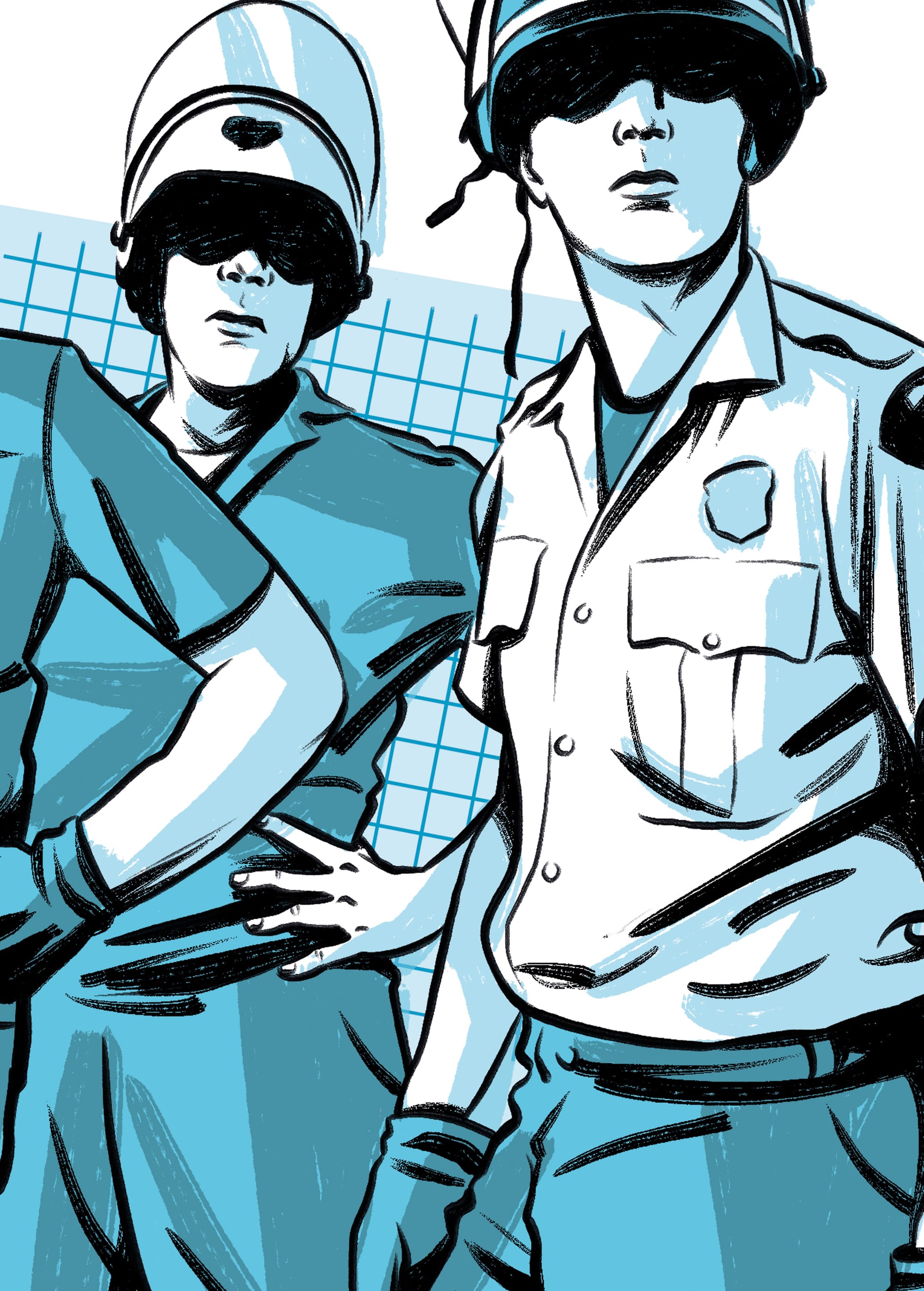See No Evil, Don't Be Evil
On Scopophobia, Mass Surveillance, and Enemy of the State

On Scopophobia, Mass Surveillance, and Enemy of the State
This is Part 3 of a mini-series on 90s Cyber Thrillers. Part 1. Part 2.
"Surveillance is permanent in its effects, even if it is discontinuous in its action." — Michel Foucault (Discipline and Punish: The Birth of the Prison)
In a Super Eyepatch Wolf video essay, John Walsh investigates a growing trend of what he describes as Social Anxiety Horror. He breaks this burgeoning sub-genre into three sub-categories: the fear of Humiliation, the fear of Paranoia and, crucially, the fear of Perception.
The fear of being perceived - also known as scopophobia - is an anxiety that is both completely relatable and entirely unavoidable. As a resident of the UK, I am likely to be captured by CCTV 70 times in a single day. In fact, there are so many CCTV cameras in the UK that there is one for every 11 people. Which is to say nothing of spy satellites, our devices tracking our every move on and off the internet, and our own attachment to social media. We are always being perceived.
As NSA whistleblower Edward Snowden said in 2013:
“A child born today will grow up with no conception of privacy at all. They’ll never know what it means to have a private moment to themselves – an unrecorded, unanalysed thought.”
I think you can see the impacts of living in the age of perpetual perception in the rise of cringe culture and a self-censorious, conservative mindset that inevitably grows from constant scrutiny.

In the 90s, Google, looking to monetise their popular search engine, started taking meetings with The Washington Post. Amit Patel, one of their engineers, had concerns:
“He was worried that [we] might tell The Washington Post that we’ll put an article that they think is more important first in the search results or not be as comprehensive if they didn’t want us to be. Things that he really viewed would compromise our integrity.” - Marissa Mayer
Patel walked into the room where the meetings were to take place and wrote three words on the whiteboard: Don’t be evil.
While this is one of many versions of the story, every iteration has the same result: Google incorporated these now famous, highly interpretable, words into the company’s official code of conduct. Don’t Be Evil became synonymous with Google and, more broadly, a Silicon Valley tech industry that was rebuilding faith in the internet in the wake of the dot com bust of the late 90s.
In 2018, it was reported that the words had been removed from Google’s code of conduct but the latest version (last updated in Jan 2024) retains the motto, making a brief, almost perfunctory, appearance in the final sentence. Whether or not the phrase is still part of the corporation’s public-facing policy, in 2021 three former employees took Google to court for failing to live up to the promise of it. Their argument: that selling cloud data and technology to US immigration authorities went against “the highest possible standards of ethical business conduct.”
In February 2025, Google’s updated AI Principles policy had removed a clause that committed to not pursuing technology that could be used to cause harm, including weapons and surveillance that could be used to break “internationally accepted norms”. This change came after Sundar Pichai, chief executive of Alphabet Inc., was seen at Donald Trump’s inauguration, alongside Musk, Bezos, Zuckerberg and Apple’s Tim Cook.
As Human Rights Watch says:
“Google’s pivot from refusing to build AI for weapons to stating an intent to create AI that supports national security ventures is stark. Militaries are increasingly using AI in war, where their reliance on incomplete or faulty data and flawed calculations increases the risk of civilian harm. Such digital tools complicate accountability for battlefield decisions that may have life-or-death consequences.”

“The government's been in bed with the entire telecommunications industry since the forties. They've infected everything. They get into your bank statements, computer files, email, listen to your phone calls... Every wire, every airwave. The more technology used, the easier it is for them to keep tabs on you. It's a brave new world out there. At least it'd better be.” - Brill
This feels like a lot of table-setting for Tony Scott’s 1998 conspiracy thriller Enemy of the State. Maybe it’s all necessary context, maybe it’s just me trying to delay depressing talk about the Military Industrial Complex and the Surveillance State.
Because, when you watch a lot of these technocautious 90s cyber thrillers, one thing becomes inescapably clear: the good guys lost. The nefarious plans of the villains in every single one of these films came true. The villains got their wish. In fact, their dastardly plots, in hindsight, now seem somewhat quaint and lacking in ambition compared to what actually happened. We live, as is often pointed out, in a boring dystopia.
“Something that Orwell never figured out in 1984 is that people would embrace the idea of Big Brother if there’s a game attached to it, or if it’s convenient. You buy a monitor at Best Buy that has a little camera inside that allows you to make Skype calls, and you don’t realise what else is behind that camera.” - David Marconi (writer of Enemy of the State)
In Enemy of the State, Will Smith plays a lawyer who becomes a target for the NSA after evidence of a politically motivated murder ends up in his possession. The murder? A congressman, standing in the way of a new piece of counterterrorism legislation that would expand the powers of America’s intelligence agencies. His only ally as he attempts to evade the clutches of a team of excitable NSA nerds (Jack Black, Seth Green and Jamie Kennedy) is Gene Hackman’s (RIP) cantankerous Brill.
“Fort Meade has 18 acres of mainframe computers underground. You're talking to your wife on the phone and you use the word "bomb", "president", "Allah", any of a hundred keywords, the computer recognizes it, automatically records it, red-flags it for analysis. That was 20 years ago.” - Brill
Brill (and the casting of Hackman) is both a knowing nod to Harry Caul - Hackman’s protagonist in Francis Ford Coppola’s seminal 1974 masterpiece The Conversation - and in some respects, a continuation. It is easy to imagine Caul ending up as Brill. Twenty years of working within the world of surveillance slowly eroding his ability to ever trust or relate to people.

“We knew that we had to monitor our enemies. We've also come to realise that we need to monitor the people who are monitoring them...” - Congressman Sam Albert
“Well, who's gonna monitor the monitors of the monitors?” - Carla Dean
Where Coppola’s film is something of a character study that quietly and patiently ratchets up the unease and paranoid anxiety of Harry, Scott’s film is, in contrast, bombastic and breathless - full of stylistic crash zooms and pans that feel like the camera is barely keeping up. This is maybe most apparent in a scene in which Scott, with typical (and enviable) bravura hubris, recreates the Union Square set-piece from The Conversation in his own imitable, over-caffeinated style.
Known (and often dismissed) for his maximalist style, it’s easy to assume Scott’s politics lean conservative. Indeed, he’s the director of one of the most famous, and successful, pieces of militainment - Top Gun - and his films are packed with the aesthetics of patriotic American exceptionalism. In a Tony Scott film, you don’t have to wait too long to see the Stars and Stripes wafting gently in golden hour light, while a French horn plays.
And yet I can’t help but see a hint of British cynicism pervading every frame. It all feels sarcastic in its OTT self-parodic excess. Like Scott is reaching through the camera to say: How could I possibly mean any of this?
Enemy of the State, in particular, feels deeply invested in highlighting the hypocrisies of a country that purports to care about individual freedoms, while consistently betraying those very same freedoms. It is also, I think, no accident that Will Smith, a black man, is the lead in a story about aggressive state surveillance. Between 1956 and 1971, J. Edgar Hoover’s COINTELPRO (Counter Intelligence Program) was responsible for wire-tapping Martin Luther King Jr., monitoring black independent booksellers, and targeting members of the Black Panther Party (among many, many others). According to an internal FBI memo from 1968, their mission was:
“Prevent militant black nationalist groups and leaders from gaining RESPECTABILITY, by discrediting them to [...] both the responsible community and to liberals who have vestiges of sympathy [and to] prevent the long-range GROWTH of militant black organisations, especially among youth.”

Just three years after the release of Enemy of the State, Jon Voight's Thomas Reynolds - the antagonist of the film - got his wish in real life. In the wake of the attacks on 9/11, George W. Bush introduced the Patriot Act. A broad, sweeping new piece of legislation that expanded the surveillance abilities of US agencies. They could tap any domestic or international phone without a warrant, indefinitely detain any immigrant without trial, and they could collect and store any personal data they deemed to be necessary. No congressman needed to be murdered to pass the Patriot Act. In fact, as Michael Moore highlighted in his Fahrenheit 9/11 documentary, barely anyone who voted for the bill bothered to read it.
But it was in 2013 when we all discovered that things were even worse than we thought. NSA whistleblower Edward Snowden leaked documents that proved that the NSA, in collaboration with Australia's ASD, the UK's GCHQ and Canada's CSEC were harvesting data and invading our privacy on an industrial scale. One of their code-named programs - PRISM - had direct access to data on the servers of Microsoft, Apple, Google, Facebook, YouTube, and Skype. They spied on Second Life and World of Warcraft players. They spied on people they were dating (they called - call? - it LOVEINT). They monitored the sexual activity of people they thought were potential radicalizers in order to discredit them. They were spying on UNICEF and other charities.
I remember when these revelations came out. While I think we all suspected that such surveillance was taking place, the astonishing scope of the reality was disorientating. That was 12 years ago.

"The satellite is 155 miles above the Earth. It can only look straight down." - Fiedler
"That's a bit limited, isn't it?" - Jones
"Well, maybe you should design a better one." - Van
Apparently Enemy of the State itself must shoulder an element of blame for what has become of state surveillance. An engineer working at a Government Research Facility saw the film and set about, with CIA backing, creating a real-life version of the all-seeing satellite technology used in the film.
"Now, numerous defense firms are peddling the technology to law enforcement departments around the U.S. Some of its most dangerous features are also trickling down into other surveillance tools, including your neighborhood CCTV." - Arthur Holland Michel
But as that tweet about the Torment Nexus so astutely points out: tech companies and governments looking at dystopian warnings of the future as handy blueprints is nothing new.
Despite the grim realities gestured at by Enemy of the State, it remains an incredibly fun time at the movies. Hackman and Smith are great together, Scott's operating at the height of his 90s powers, and Marconi's script keeps everything snappy and engaging. It ranks among Scott's best work, alongside Crimson Tide and True Romance.
And its themes just get increasingly relevant...
“If we think about what we saw in 2013 and the capabilities of governments today, 2013 seems like child’s play.” - Edward Snowden (in 2023)
Snowden, these days, remains in exile in Russia and rarely does interviews. But he was moved to speak out in 2022 when OpenAI added former NSA Director Paul Nakasone to their board:
"They've gone full mask-off: do not ever trust OpenAI or its products (ChatGPT etc.) There is only one reason for appointing an NSA Director to your board. This is a willful, calculated betrayal of the rights of every person on Earth."
Meanwhile, a 2022 report found that the US Intelligence Community is currently using tax payer money to buy large collections of Commercially Available Information (CAI) on its citizens. This is all the data that trackers collects on us when we browse the internet or use any of our devices. This data is then packaged and sold off to whoever wants to buy it. Including governments.
“Any nightmare use for data you can think of will probably eventually happen [...] It might not happen immediately, but it’ll happen eventually.” - Byron Tau (Means of Control)
Meanwhile, Apple have removed a key encryption feature for UK users at the behest of the British government. It removes encryption on our health data, passwords and other sensitive information. Before, Apple themselves couldn't read or access this information. Now they can, and can be compelled by law enforcement to turn it over.
Meanwhile, Israel is developing a ChatGPT-esque tool to increase surveillance of Palestinians. This will be used alongside the AI programme Lavender which was already being used to select targets for bombing campaigns. It is known to have an error rate of at least 10% and, as with all AI, is not immune from hallucinating results.
“The humans that were interacting with the AI database were often just a rubber stamp. They would scrutinise this kill list for perhaps 20 seconds before deciding whether or not to give the go-ahead for an air strike.” - Rory Challands (Al Jazeera)
A lot of cutting-edge military and surveillance technology is used on Palestinians before then being sold to other international governments as "field proven".
Meanwhile, Palantir is developing something called TITAN, a "next-generation Intelligence, Surveillance, and Reconnaissance ground station enabled by Artificial Intelligence and Machine Learning to process data received from Space, High Altitude, Aerial and Terrestrial layers."
Meanwhile, Musk and his broccoli-haired brownshirts at DOGE are gaining access to sensitive data, installing their own servers in Federal offices and signing deals with Palantir. What are they doing with all the information they get?
"DOGE representatives across government agencies—from the Department of Housing and Urban Development to the Social Security Administration—are putting data that is normally cordoned off in service of identifying undocumented immigrants" - Brian Barrett (WIRED)
Meanwhile, ICE are soliciting pitches from private companies to help them scan people's social media accounts. Anyone found to be critical of the agency or be associated with groups they deem to be violent, could be deported or detained. Facial recognition software will also be used in this process - scanning the internet for images of the person in question. All of which is being done under the auspices of “proactive threat monitoring.”
Meanwhile, the UK government are looking to AI and algorithms to develop a Murder Prediction Tool.
“Time and again, research shows that algorithmic systems for ‘predicting’ crime are inherently flawed. This latest model, which uses data from our institutionally racist police and Home Office, will reinforce and magnify the structural discrimination underpinning the criminal legal system. Like other systems of its kind, it will code in bias towards racialised and low-income communities. Building an automated tool to profile people as violent criminals is deeply wrong, and using such sensitive data on mental health, addiction and disability is highly intrusive and alarming.” - Sofia Lyall (Statewatch)
I'd recommend checking in on Statewatch every now and again. I just looked and discovered a new UK Data Use and Access Bill is proposing to let law enforcement use fully automated AI decision making with no human oversight. Sounds great. No notes.
I sometimes want to scream about these things to leftist or activist friends who unironically and uncritically share the latest AI art slop trends or post My Cat As A Human pictures in the group chat. But I don't want to be that guy.
Anyway, hope you've been enjoying the third part of my series about the evils of modern technology where I am definitely not being that guy.

With the detention (and expected deportation) of Mahmoud Khalil and other campus protestors who demonstrated against the American-backed genocide of Palestinians in Gaza, I've been thinking a lot about Peter Watkins' Punishment Park (a film I've discussed before in my Bread and Bloodsports piece). One of the most chilling aspects of it is how manufactured consent had been so successful that civilian members of the community run the tribunals that hand out absurd, disproportional sentences to the political prisoners. Their contempt for the activists barely concealed.
Today, if consent has been successfully manufactured for the detention and deportation of citizens who criticise their government, and law enforcement can access every morsel of information about us that has been harvested online... How free do you really feel? Could a hallucinating AI decide you're an Enemy of the State?
Do You Want to Know More?
- A collection of David Marconi interviews about writing Enemy of the State.
- A making of featurette.
- An interesting analysis of Deja Vu - another surveillance film by Tony Scott. If Enemy of the State is his pre-Patriot Act film, Deja Vu is definitely post-Patriot Act and suggests a Scott who is less concerned about privacy. It's a fun film though.
- The Haunting Prescience of Enemy of the State.
- A Director Who Excelled in Excess - an overview of Tony Scott's filmography that was written after he died.
- This Is What a Digital Coup Looks Like - an excellent, Required Viewing, TED talk by Carole Cadwalladr.
- A close reading of that moment in The Departed when Alec Baldwin shouts "Patriot Acccccct! I love it I love it I love it!"
- A 10 year old episode of Last Week Tonight about State Surveillance. Featuring an interview between John Oliver and Snowden.
Bits + Bytes
- If this newsletter looks slightly different in your feed/inbox - that's because I've moved from Substack to Ghost. I've been thinking of getting off Substack for some time and now seemed as good a time as any. It means I'm now paying a monthly fee but I'm happier with that than being hosted on a platform that is, at best, fascist adjacent/friendly. I've exported all my posts and subscribers here so hopefully I haven't lost any of you in the switch. If you had a paid subscription, that is now cancelled. Everything will remain free to read here but if you fancy helping me out with hosting fees, there are a couple of paid tiers available. You can also now gift a one-off donation.
- In the aftermath of the absolutely sickening Supreme Court decision in the UK, I thought this piece by Shon Faye was excellent and worth reading if you haven't already.
- The Mindless Ones are back with a weekly newsletter and if you like great comics criticism and insightful cultural analysis, I'd recommend subscribing!
- I've applied to attend a few comic conventions this year. So far I can confirm I'll be at Glasgow Zine Fair in June, Sequential Scotland in August, Lakes International Comic Art Festival in September, and Thought Bubble in November. As and when others are confirmed, I'll update the Events section of my website here.
- Introduction to Charts, the award-winning (!) poem comic by me and Chrissy Williams, sold out its first printing. The second printing is now back from the printers (the ever fantastic Out of the Blueprint) and it looks beautiful. We decided to use aqua in place of blue as one of the inks and I couldn't be happier with the results. Back in the shop here.


